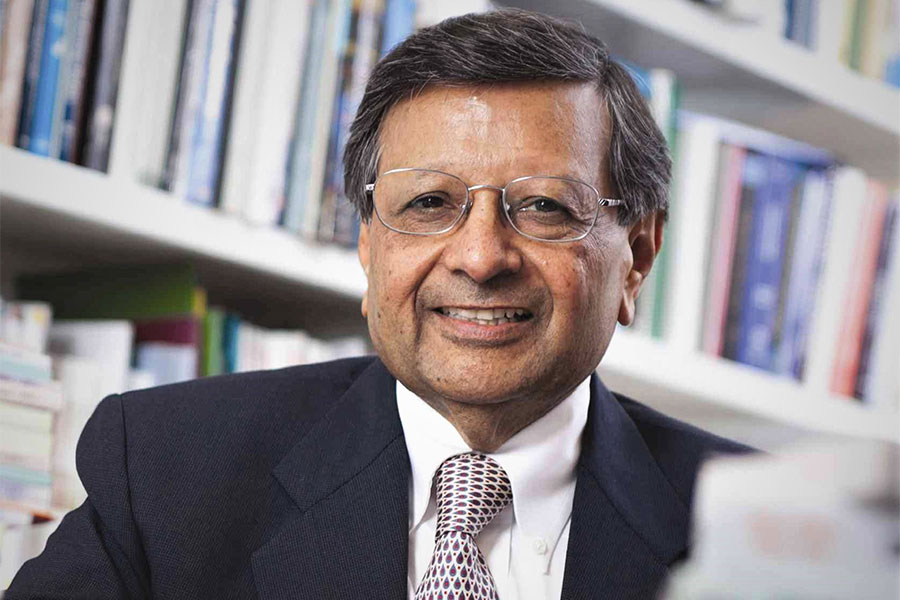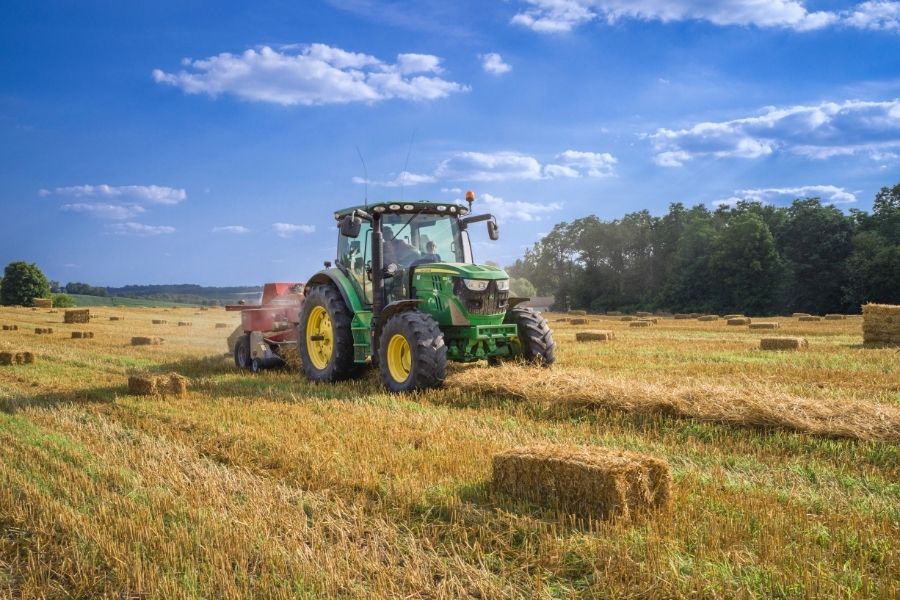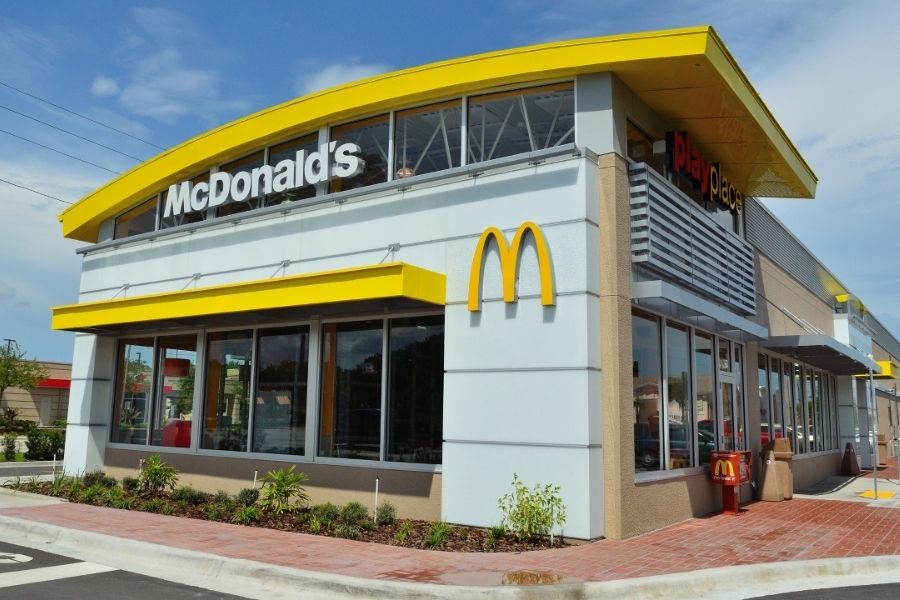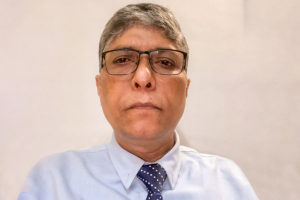India can leverage contract farming to boost value added exports
Prof Jagdish Sheth takes a deep dive on the various models of contract farming that have evolved in the US over the past two centuries. If done right, he believes that it can help India exploit its untapped potential in food processing and value added exports. Also, it can enable farmers to embrace modern techniques in farming and improve the value of their land.

Contract farming became very popular in the US after President Abraham Lincoln abolished slavery in 1863. That was also the period when the US moved from being a farming economy to an industrial economy. Lots of factories were built, especially in the food processing industry. These large-scale manufacturers needed a steady supply of plant and animal raw materials, rather than being at the mercy of the vagaries of trading markets or mandis, as we call them in India. Thus, they began to encourage contract farming.
The rise of cooperatives was another key factor that fueled the rise of contract farming. Many of the agricultural farmers decided that they would rather have their own vertical integration. So they created their own retail brand names in products like cranberries. And there are world class brand names like Ocean Spray. Most Florida orange growers created their own cooperatives. They ended up not just branding themselves, but the product itself, by educating people on the product and its benefits. California did the same thing with raisins.
So the cooperatives have become a key factor, especially if you’re a smaller farmer and can supply to large food processors. The second-best thing is to create a cooperative that you own. Cooperatives are in fact equally popular in India; a fact that we don’t contemplate much about.
Amul Dairy is a cooperative driven by farmers. Except for processing and marketing, the Amul business model is owned by farmers. Through this model, you can guarantee your supply to the distributor, food processor or marketer, whoever they are (ownership by farmers).
Thirdly, as large food manufacturers or processors in America needed more access to raw materials like coffee, sugarcane, and cotton, they went overseas. Their primary destinations were countries in Central America and the Caribbean Islands, where the land is owned by the government. Now, the ownership stays with the government, who can provide large tracts of land. So either you invite a farmer to farm for you, or you farm yourself.
In the island of Hawaii, you do not own the land. That is always owned by the government. It gives you a long-term lease to put your own plantations, for example in the case of sugarcane and pineapples. So, this is one major category, especially because the US is blessed with large land masses.
Canada was even more innovative. They had large tracts of land in central Canada called the Prairies, but what they did not have were the people. So, they invited people from India, mostly from the Punjab. They would give them the land for $1 and even offer them ownership. So, land comes free to you, as long as you have the capability and interest to farm. And, that was how farming grew in Canada. The same Sikh community eventually moved to the West Coast, and came down to central California, which is a major agricultural economy.

Image credit: Photo by Randy Fath on Unsplash
There is one more aspect of America, which is somewhat unique. Before the end of slavery, white settlers owned large tracts of land, and they already had the labour. But after slavery was abolished, the labour was free to do what they wanted to, which led to another system called share cropping. Here the landlord owns the land, but he needs the labour, so he invites the same African-Americans to cultivate the land and share the crop, but they don’t pay wages.
Two sides of the coin
Getting into long term contracts gives farmers steady business year after year. One example is McDonald’s, which buys so many potatoes to make French fries that the state of Idaho depends on the McDonald’s business. So, you get the guarantee of a steady supply and demand as a contract manufacturer or contract farmer. Also, you get pricing right, as opposed to the spot market, which fluctuate because of commodity speculations and weather conditions.
The second major advantage of contract farming is that the buyer, in this case a food processor, has strong interest in ensuring that you grow the right species and in the most efficient manner possible. They give you the sample of the genetics of the species and provide all the knowledge on how to farm and deploy more modern ways to get more yield per acre.

Image credit: McDonald’s
However, contract farming also has significant disadvantages that need to be tackled, especially for smaller farmers. The first major disadvantage is that you may get into debt because you have to buy raw materials on your own. You have to hire labour outside of your own family. You might need cattle or a horse, if you farm in the traditional way or hi-tech equipment if you choose the modern way. Since you have signed a contract, you are under the gun to supply and at the same time, you have to borrow money to fulfil your contract.
The second major problem, of course, is Mother Nature. If the weather goes bad, you may get into trouble as you have already committed so much quantity, at a given price. In contract farming, you are taking a risk.
So in the US, in order to encourage modern farming, government came out with two separate schemes. They created land banks, which are designed specifically to finance all kinds of equipment that farmers need. At the same time, they also created storage or farm elevators, where your commodity is stored. If it’s a success, you produce more. When Mother Nature is nice, you have more capacity than what the contract manufacturer, or food processor can buy from you. They even provide insurance to hedge against possible risks. So, insurance, banking, and infrastructure support are recognised as the key pillars to make farming much more modern and competitive worldwide.
The third major disadvantage is that your supply is locked into one particular food processor, and therefore, the pricing mechanism is not a market-determined mechanism. That is very good in terms of reducing the risk, but at the same time, the upside of access to an open market is not there.
The last risk one can contemplate is that the lender, who gives the money for operating expenses, or sometimes the equipment, often makes land a collateral, like we do with a home mortgage. And they can become very aggressive and take possession of your land, if you are unable to make payments. But other than that, contract farming has been good, especially for smaller farmers.
Adapting contract farming in India
The Government of India has sought to give a legal basis to the existing practice of contract farming in India through The Farmers (Empowerment and Protection) Agreement on Price Assurance and Farm Services Bill, 2020. Essentially, it gives farmers a framework to enter into direct contracts with consumers or food processing companies. So far, farmers are compelled to opt for licenced traders in most parts of the country.
The impact of such a path breaking bill will be markedly different for large and small farmers. But I think it is possible for both to co-exist and prosper under this regime.
Large farmers can successfully gain from contracts for commodities like corn, soybeans and wheat, which are subject to global prices, volatility and speculation. The small farmers, on the other hand, would be better off if they go for more high value crops, where the rupee price per acre of the yield is much greater than rupee price for some other commodity.
For instance, they could opt for growing grapes, which make wine. Wine is a higher valued product and you can make much more than what you make from corn. If you are blessed by Mother Nature, you could grow an orchid of almonds, mangoes or even certain types of coffee. Coffee aroma and taste are very important to buyers like Starbucks and Café Coffee Day, and other bulk coffee buyers in the world. If they like the blend that you create, you could gain significantly.
Due to the unique nature of what you produce on your soil, you can have an advantage. You can take higher prices for the same amount of labour that you put in, because the land is a blessing. For instance, Basmati Rice in India is a unique variant and requires certain ways of growing. Similarly, Afghanistan is specialised in poppy seeds and saffron. So, you can see all the examples where nature gives you an advantage in growing something in a limited capacity. If you own that gifted land, you can do pretty nicely.
India is indeed very uniquely positioned as an agri producer. If we are global in our mindset, we can produce a rich diversity of processed food products in India, and export them all over the world. Brands like Haldiram’s and Patanjali are popular examples.
One product category that comes to mind is pickles. In fact, there are companies in India, which package pickles for private labels in America. The second largest pickle packing company worldwide named Global Green, is surprisingly in India. They make a guar pickle and apparently, the western world loves it. Pickle processors basically pack it for you and ship it out to a huge market.
That’s just one example. Many Indian products are becoming very mainstream in the Western world, as Indian cuisine becomes more popular for celebrity chefs. The fact that India is at the centre of attention breeds fascinating possibilities. In the United Kingdom, among the non-Indian population, the most common or convenient food item was fish and chips. It is now totally replaced by Indian curry. Chicken Tikka Masala seems to be most popular among the Brits. And that’s just the tip of the iceberg.
Today, orange concentrates and orange juices are becoming more common, not just fresh oranges. Brazil is one of the largest producers of frozen oranges in the world. Around 50% of the American orange processors like Minute Maid (owned by Coca Cola).
Companies like Coca Cola buy extensively from Brazil. India can be a good alternative to Brazil, because we do produce good oranges. We make certain unique agricultural foods that nobody else can make. It’s a question of just thinking through and looking for ways to add value for both domestic and export markets.
One does not need to just ship commodities as we do. Instead, one needs to do more value addition. India is better off in value addition, because it has technical capability and we know how to do it surprisingly well. We are very good in chemistry and food processing at large. We can train people in this regard by sending them to universities, which undertake capacity building for scientists and food processing experts.
Contract farming can be a major catalyst for this transformation. The largest land owner in any country is the government. I’ve seen the Indian government, both at the federal and state level, giving lands for special economic zones and the IT industry. I think we need to set aside government land for farming and that can be done on a contract farming basis, where the ownership still remains with the government, but you invite somebody to do the farming.
One of the key issues in India, which I would like to summarise, is that we have the size, but not the scale. Once we have the scale, we can do modern farming. Modern farming will yield a lot more per acre; therefore, the value of the land will go up by definition. It’s a key advantage to the farmer, which can be achieved through contract farming in increasing the wealth of the farmer through appreciation of the land value.
Jagdish N. Sheth is Charles H. Kellstadt Professor of Business in the Goizueta Business School at Emory University. He is globally known for his scholarly contributions in consumer behavior, relationship marketing, competitive strategy, and geopolitical analysis. Professor Sheth has over 50 years of combined experience in teaching and research at the University of Southern California, the University of Illinois at Urbana-Champaign, Columbia University, MIT, and Emory University. Dr. Sheth is a recipient of the 2020 Padma Bhushan Award for literature and education, one of the highest civilian awards given by the Government of India.
He is also a Fellow of the Association of Consumer Research (ACR); Fellow of the American Psychological Association (APA); Fellow of the American Marketing Association (AMA); Distinguished Fellow of the Academy of Marketing Science; and a Distinguished Fellow of International Engineering Consortium. Dr. Sheth is the recipient of an Honorary Doctorate in Science, awarded by the University of Illinois at Urbana-Champaign (2016), and Honorary Doctorate of Philosophy, awarded by Shiv Nadar University (2017). He is the recipient of all four top awards given by the American Marketing Association (AMA). Dr. Sheth has been on the board of several companies including Norstan, Pacwest-Telecom, Cryocell International, Shasun Drugs and Chemicals, and WIPRO Limited. Over the 50 years, he has been advisor to numerous companies including Whirlpool, Motorola, Texas Instruments, Cox Communications, Rockwell International, AT&T, Bellsouth, WIPRO Consumer Care, Aditya Birla Group, L.M. Mittal (Avanta), E&Y, Square D, Ingram Micro, Hughes Corporation, and others. His Rule of Three book has been the foundation for investment bankers and policy makers with respect to industry consolidation including horizontal mergers and acquisitions.
Professor Sheth has authored or co-authored more than three hundred papers and several books including Clients for Life (2000), The Rule of Three (2002), Tectonic Shift (2006), Self-Destructive Habits of Good Companies (2007), Firms of Endearment (2007), Chindia Rising (2011), The 4 As of Marketing (2012), Breakout Strategies for Emerging Markets (2016), The Sustainability Edge (2016), and Genes, Climate and Consumption Culture: Connecting the Dots (2017). His autobiography, The Accidental Scholar (2014), has inspired others in the areas of education and academic entrepreneurship. Professor Sheth has been advisor to the Government of Singapore in repositioning the nation for the future. He has also been the policy advisor to the U.S. Government about the future of the telecommunications industry. Dr. Sheth is the Founder of Center for Telecommunications Management (CTM) at University of Southern California (USC) which has now become an Institute. He is also Founder and Chairman of India, China, and America (ICA) Institute which analyzes the trilateral relationship and its impact on geopolitics, security, trade, and investment. Finally, Professor Sheth is the Founder and Chairman of the Academy of Indian Marketing (AIM) which supports research and scholarship among Indian scholars in marketing and management.













Well written and lucid essay explaining a mundane topic most of us do not even think about–the origin of our food supply chain. Giving it a 5-star and sharing!